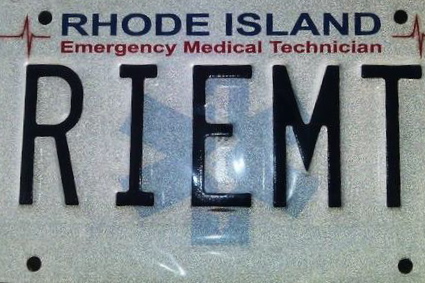
David Warsh: The meaning of the Scott Walker phenomenon
SOMERVILLE, Mass.
Republican Party business interests and centrists have rallied around Jeb Bush. Tea Party conservatives so far seem to prefer Wisconsin Gov. Scott Walker to the rest of the list of would-be contenders – Chris Christie, Ted Cruz, Mike Huckabee, Rand Paul, Rick Perry, Marco Rubio and Rick Santorum. The first state primary is still 11 months away. But to understand the appeal of Bush and Walker to their respective constituencies, it helps to know something about the situation on the ground in Wisconsin.
Walker, 47, who rose from state legislator in 1993 to county executive for Milwaukee to governor, achieved national prominence in 2011, when he successfully campaigned to strip the state’s public unions of most of their collective bargaining rights. He survived a recall election and, in 2014, won a second term.
Recently he picked a new fight with organized labor when he said he would sign “right-to-work” legislation on the verge of passage in the Republican-led legislature. The measure would deprive unions of their right to charge non-member workers the equivalent of dues.
Robert Samuels, of The Washington Post, spent time in the state recently and found the public unions reeling. Describing an ill-attended meeting in a union hall in a small town in central Wisconsin, his report began:
'The anti-union law passed here four years ago, which made Gov. Scott Walker a national Republican star and a possible presidential candidate, has turned out to be even more transformative than many had predicted.
'Walker had vowed that union power would shrink, workers would be judged on their merits, and local governments would save money. Unions had warned that workers would lose benefits and be forced to take on second jobs or find new careers.
'Many of those changes came to pass, but the once-thriving public sector unions were not just shrunken — they were crippled….
'The state branch of the National Education Association, once 100,000 strong, has seen its membership drop by a third. The American Federation of Teachers, which organized in the college system, saw a 50 percent decline. The 70,000-person membership in the state employees union has fallen by 70 percent.''
The story artfully hints at the disparities in job security, wages, and benefits that exist between union and non-union jobs. Statistics are hard to come by, but where government workers fifty years ago routinely accepted lower levels of compensation in return for greater job security and reliable pension benefits, anecdotal evidence suggests that government salaries in recent decades have tended to equal and often surpass comparable private sector employment opportunities.
Samuels writes,
''While some union members have been energized by the fight, they say they notice a new, more vocal animosity toward them. It has been particularly pronounced in rural areas, where public-sector jobs were some of the most prized gigs in town.
''In King [Wis], population 1,700, [union steward Terry] Magnant said she couldn’t change a sign at the union hall without someone giving her the finger. Farther west, in Stanley, prison workers said they ditched their favorite pizza pub because the owner stood by while other customers called them 'leeches.'
''In Reedsburg, that tension surprised Ginny Bourgeois, 52, who clerks at a local Kwik Trip. The community had always been divided, defined as much by the factories manufacturing car parts as it was by cornfields now blanketed in snow. Still, it was a place where the community got together for spaghetti and corn feeds and filled bleachers to watch the Reedsburg Beavers play. Now, she said, people were fighting over politics at gas stations.
''Still, she felt unions needed to sacrifice.
'“Everyone knows teachers’ insurance was some of the best you could get,' Bourgeois added. 'They do fairly well around here, and they do a good job teaching. But everyone in this town has had to tighten their belts. They should too.'
''Judy Brey, a 58-year-old speech therapist who taught in the community for 22 years, said such sentiment hurt teachers’ morale. She said she grew up admiring her dad, who put six children through college on his union-supported job as a forester. 'I don’t make a lot, but we’ll be okay with retirement, ' she said he told her. That, she was taught, was the reward for public service in Wisconsin.
“'Now I’m always nervous that everyone will think they’re moochers,' Brey said. 'That I’m a moocher.”'
The history of the union movement can only be understood in the larger context of American business in the 20th Century – but it seldom is, Even the broad outlines of the story of American business are not well understood.
Alfred Chandler, the great historian of business, who spent his last 40 years at the Harvard Business School, worked tirelessly to demonstrate the importance for economic growth of giant corporations – not just in the US, but in Great Britain, Europe and Japan. First in Structure and Strategy: Chapters in the History of American Industrial Enterprise (MIT, 1962), then in The Visible Hand: The Managerial Revolution in American Business, (Harvard, 1977) and finally in Scale and Scope: The Dynamics of Industrial Capitalism (Harvard, 1990), Chandler described and analyzed the stability that arose when industries became oligopolies, markets dominated by a handful of first-movers, each with substantial power to set prices, all determined to compete on other grounds.
But when the time came for an international conference in 1994 to celebrate what was clearly a triumph of empirical economics, Big Business and the Wealth of Nations (Cambridge, 1997), European unions were barely mentioned. and American unions had no place at all in the index. Moreover, it was already apparent that market conditions had changed dramatically since the 1970s – that the twin forces of innovation and globalization were undermining familiar arrangements of enterprise that had begun taking shape more than a hundred years before.
No comparable economic history of the labor movement exists, though Atlantic Crossings: Social Politics in a Progressive Age (Harvard, 1998), by Daniel T. Rodgers, of Princeton University, made a very good start. Steven Greenhouse, for 19 years a labor reporter for The New York Times, contributed The Big Squeeze: Tough Times for the American Worker (Knopf, 2008) before he retired earlier this year to begin another book. In the mid-1950s, 35 percent of American workers belonged to unions, Greenhouse writes; in 2008, the number was 12.1 percent and declining, just 7.5 percent in private sector unions — the lowest proportion since 1901. But those numbers come toward the end of the book, not the beginning.
The story of the last 40 years has been one of pell-mell corporate restructuring in industrial economies and newly industrializing ones around the world. Call it what you like: deregulation, a Big Bang, the Leap Outward, Perestroika. Private unions have been intimately affected by the turmoil, public unions somewhat less so.
In the U.S., the Employment Retirement Security Act of 1974, known as ERISA, spelled out rules under which companies could legally freeze their pension plans. Few have hesitated to do so.
But no such measure was undertaken for public pensions. As Mary Williams Walsh, the dean of pension reporters, wrote recently in The New York Times, cracks have started to appear in the legal foundation of government pensions, the doctrine of “vested rights:”
''First in Detroit, then in Stockton, Calif., now in New Jersey, judges and other top officials are challenging the widespread belief that public pensions are untouchable.''
Walker is clearly part of this evolution. He should be seen to have begun doing something that needs to be done – albeit in an especially combative way. Just as corporate restructuring called forth a gallery of types over the years – entrepreneurial geniuses and private equity kings, roll-up artists and spin-off wizards, merger mavens and makeover masters – so the restructuring of labor markets eventually will be seen to have produced a few basic sorts of innovative leaders. Walker is one such example..
Among corporate chieftains, the lowest rung is reserved for those known as asset-strippers, a term of no great precision, except that the community knows one when it sees one — raiders who borrow heavily and then sell off assets to pay down debt with no clearer goal than the accumulation of riches. My hunch is that is the category in which Walker will come to be placed – a political asset-stripper of uncommon ambition, who sought to convert a policy of smug confrontation to personal gain.
It’s Wisconsin, a state of sharply divergent traditions, not Indiana or Michigan; maybe it could not have been done any other way. But Scott Walker is very unlikely to become the Republican nominee, much less president of the United States.
David Warsh, a longtime financial journalist and economic historian, is proprietor of economicprincipals.com
William Morgan: Driving away design
Who, you might well ask, designs these kindergarten-art advertisements? In this case, it was a Saunderstown veterinarian, avian surgeon and president of the Wildlife Rehabilitators, Dr. Meredith Bird.
William Morgan is a Providence-based author and architectural historian.
New England Diary on WADK
The overseer of newenglanddiary.com, Robert Whitcomb, regularly talks with his friend Bruce Newbury on Mr. Newbury's show, Talk of the Town, at 1540 A.M. at 9:30 to 10 in the morning Tuesdays (if you're in Rhode Island) and on podcasts on WADK.com for anyone, anywhere, anytime. Sometimes they yak on other mornings, too, about the news -- mostly local but sometimes extending beyond the Earth.
From Gordon Fox to the dwarf planet Ceres....
Robert Whitcomb: Hospitals should be insurers, too
This piece first ran in the Huffington Post.
Steven Brill's latest book, America's Bitter Pill: Money, Politics, Backroom Deals, and the Fight to Fix Our Broken Healthcare System, has gotten a lot of attention in large part because of Mr. Brill's vivid anecdotes about the "jalopy'' of American health care. They're memorable stories, gathered with his famous work ethic and intense curiosity, though there's a bit too much about his own deluxe heart-surgery adventures at Manhattan's very expensive New York-Presbyterian Hospital, which comprises some of the narrative glue of this book.
(I found my own open-heart surgery a couple of years ago to be tedium interspersed by fantastical hospital "chargemaster'' billing. A doctor friend told me that the bills had little connection to the reality of the final total bill.)
Since we're all healthcare consumers, it would be nice, even in this post-literate society, if most adults read this book, to see how their money is being spent. Mr. Brill brings a lot of transparency to this all-too-opaque sector.
Mr. Brill is a rich entrepreneur and journalist and very much a member of the elite, luminaries of which he has easy access to. But he also displays strong compassion for the low- and middle-income people with whom he talks. Many of these folks have a brutal time paying for essential care (especially the unexpected kind) and navigating the obscenely complicated and contradictory U.S. healthcare "system''. His richly reported book provides a colorful, disturbing and occasionally encouraging look at our medical maze.
It's also a sort of thriller about the near-death saga of getting the Affordable Care Act enacted amidst relentless lobbying and political conflicts of interest. Then comes the Obama administration's efforts to recover from the disastrous launch of the HealthCare.gov website. Mr. Brill provides a heartening counter-example by telling us about the triumph of healthcare reform in -- perhaps surprisingly -- the Red State of Kentucky.
Most readers are at least vaguely aware of the institutionalized squalor of much Washington lobbying by some healthcare constituencies, and Steven Brill doesn't stint on telling us more about that. One recalls the famous line by Otto von Bismarck to the effect: "Like sausage-making, you don't want to see how laws are made.''
But there aren't many big surprises, except perhaps that you may find from reading this book that the profiteering by the pharmaceutical and medical-device industries -- for which the public pays much -- is even more extreme than you thought.
Meanwhile, there hasn't been nearly enough comment on his very good ideas to improve the ''system's'' egregious lack of coordination, reduce its gigantic costs and even improve medical outcomes, of all things.
In my view, his most interesting proposals are to encourage more hospital systems to get bigger (and hence to offer broader population-health care and better, most cost-efficient care of individual patients, especially the chronically ill) and to be insurance companies as well as care providers.
And in fact more and more systems have been getting into the insurance business in recent years. It may be the best way to incentivize both care coordination and cost control. Most of hospitals' and their clinicians' financial incentives to over-treat and over-test would disappear if the hospitals were also stuck with the claims costs!
Mr. Brill emphasizes what most people in the public don't seem to get: That hospitals with cost-plus "chargemaster'' billing, big operating profits and hugely compensated senior execs have driven much of the health-cost surge. That very much includes the "nonprofit'' hospitals, many of which are hugely profitable. "Nonprofit'' usually just means that things are arranged so that these enterprises don't pay most taxes.
It is the insurance companies, with relatively small profit margins, they get unfairly blamed for just about everything in U.S. health care. (Mr. Brill would also have done well to note that U.S. physicians are by far the highest paid in the world.) Hospital-insurer mergers don't mean that all independent insurers would go away. They'd still be needed (barring extension of Medicare to everybody) to cover bills from small, independent hospitals, independent physicians and some other clinicians.
Hospital system-insurer combined entities are well-positioned to collect and analyze data about patients to improve care and better allocate resources. Indeed, Mr. Brill says, the bigger the hospital system in a region, the better opportunity a system has to coordinate a patient's care in various inpatient and outpatient venues and cut costs through efficient, expense-saving "bundling'' in treating individual patients' injuries and illnesses over time. This includes treatment at the outpatient clinics that systems are increasingly establishing as the number of inpatient beds steadily declines.
Mr. Brill quotes Jeffrey Romoff, the chief executive of the big-foot University of Pittsburgh Medical Center system, which has an insurance company, on provider-payer marriages:
"All the incentives are aligned the right way. It's the beauty of being the payer and the provider at the same time. When the interests are not aligned, it's why seniors dying of cancer get chemo when they should just get hospice care.''
Obviously the hospital systems becoming insurers take on new processing costs, but think of how much money could be saved by cutting out the third-party middleman. For one big thing, the hospital-insurance combo doesn't worry about paying dividends to insurance-company shareholders or insurance execs' multimillion-dollar salaries. And the new combos might become a little more disciplined about the hospital execs' compensation.
Mr. Brill also suggests capping operating profits of hospitals (including "nonprofit'' ones) to, say, 8 percent. While he doesn't use the term "public utility'' I was reminded of the old-fashioned model of state regulators allowing about that percentage for electricity and natural-gas utilities. Maybe it's time to look at hospitals as public utilities, which they sort of are.
This doesn't address pharmaceutical and medical-device companies' astronomical profit margins, protected by Washington lobbyists who are even more effective than the insurers' and hospitals'. They drive up healthcare costs a lot. But the increased transparency and rigor in looking at the unimpressive medical outcomes associated with some heavily marketed medicines and devices will help constrain their pricing.
Mr. Brill also wants to cap salaries of hospital executives. I'm always leery of government micro-managing internal decision-making in nongovernmental organizations -- too clunky -- but the idea should be studied.
So let's hope that state and federal regulators don't put too many roadblocks in the way of many more hospital systems becoming insurers.
Extending Medicare to everyone might be the most cost-effective reform but economic constituencies, and ideology often divorced from macro-economic realities, in Washington will prevent that, at least for the foreseeable future.
But Mr. Brill's prescriptions could help a lot. Meanwhile, let us hope that the shrinking number of paid healthcare journalists, such as Steven Brill, do what they can to disinfect a system with all-too-often mediocre care and exorbitant costs that threaten to bankrupt America. More sunlight equals more reform.
Robert Whitcomb (rwhitcomb51@gmail.com) is a partner and senior adviser at Cambridge Management Group (cmg625.com), a healthcare-sector consultancy, a Fellow of the Pell Center for International Relations and Public Policy and overseer of newenglanddiary.com. He's a former finance editor of the International Herald Tribune, a former editor at The Wall Street Journal and former editorial-page editor at The Providence Journal.
Suppose you were Gordon Fox...
"Suppose you were an idiot, and suppose you were a member of Congress; but I repeat myself.'' This line from Mark Twain came to my mind when I read about former Rhode Island House Speaker Gordon Fox so brazenly taking $52,500 in bribes from a Providence restaurant so that it could get a liquor license and using $108,000 in campaign money for personal use. How brazen and how banal.
The name of the restaurant? The Shark Sushi Bar & Grille!
James P. Freeman: Boston dies at 394
JULY 4, 2024
With an air of inconsolable sadness, the Boston City Council announced today, on the anniversary of the republic’s birth, that the City of Boston passed away after a long illness. It was 394 years old, six years short of what would have been its 400th birthday.
While the cause of death was not immediately disclosed, it is widely believed that one of America’s oldest municipalities expired after complications arising from morbid obesity (collapsing from the weight of massive unfunded liabilities) and asphyxiation (suffocating on uncontrollable borrowing). Boston was to play host to the 2024 Summer Olympic Games, which were largely financed with debt and taxes. The opening ceremonies and the official competition, now cancelled, were due to commence later this month.
Whimsically referred to as “The Hub,” it also suffered from congestive heart failure and coronary artery disease. A complicated and expensive procedure was undertaken in 1991 to unclog its central artery. Known as “The Big Dig,” and thought to create a future unfettered, it provided only temporary relief by creating a double by-pass (the Tip O’Neill Tunnel and Ted Williams Tunnel).
It was finally completed in 2007, after 16 years and costing over $14 billion, well over the original $2.6 billion estimate. Plagued by administrative incompetence, mitigation payments and political corruption, that project, with a cruel irony, was to be finally paid off 14 years from now. Like many patients arrogant with self-indulgence, bad behavior contributed to its ruination.
Boston is predeceased by Detroit, MI, Jefferson County, AL, Orange County, CA, Stockton, CA, San Bernardino, CA, Bridgeport, CT and Central Fall, RI. Those cities suffered similar symptoms, ultimately succumbing to overextended obligations.
Founded by Puritan settlers, in 1630, on egalitarian political idealism and a revolutionary character, its members’ lives were structured by limited resources and stark morality. An early observer of America’s burgeoning democracy, Alexis de Tocqueville, wrote that the Puritans were governed by “austere principles.” Such a peculiar genius seems remarkably quaint by today’s evolving standards of propriety. And those once-vaunted values guided that pioneering fervor to The Boston Tea Party and early support for Abolition, a sampling of its importance to American history as a beacon of liberty. But that libertarian spirit waned as a progressive wave dominated much of the 20th Century.
In the years preceding its failure Boston was the 24th largest city in the United States. Public communication often took place in the Brutalist-styled City Hall, before the bannered backdrop of a sign that read: “Thriving, Healthy, Innovative.” And so fiscal pathologists and actuarial planners were lamenting over the demise of a city thought to be a postcard of urban health.
In 2015, the last year for which records are available, the city’s budget was $2.7 billion. Despite its sterling bond ratings, it was reported to have over $6 billion in unfunded pensions and retiree healthcare liabilities, according to the Boston Business Journal.
Additionally, it also had over $1 billion in outstanding debt. Over 14,000 active city employees were supporting 10,000 retirees, who, on average, were receiving $36,000 annually.
A closer inspection of the books indicated an ever increasing portion of its budget was dedicated to pension and debt service, stripping the city of its ability to cover more discretionary spending. Demographic changes also showed an increasingly aging workforce.
Given this backdrop, it was surprising Boston submitted a bid for this summer’s games in 2014 (it was awarded them in 2017). Organizers originally proposed a $4.7 billion operating budget with total a cost projected well above $10 billion. Despite assurances by then-Mayor Martin Walsh that no public funds would be used to finance the games, and despite a significant infusion of private money, the city in fact was forced to pay a substantial part of the cost. With this additional burden -- and absence of adequate accountability and transparency -- the city was unable to continue as a going concern.
Expressions of sympathy began arriving from around the country, including Los Angeles, San Francisco, and Washington, D.C., cities not chosen by the U.S. Olympic Committee. Heartfelt condolences were received also from Denver, originally selected to host the 1976 XII Olympic Winter Games, but relinquished holding that Olympiad when voters rejected its financing. Boston voters were never given that opportunity.
Mourners discerned a sort of political synesthesia over the last decade of its life. A mayor elected by popular vote in 2013 was against allowing a public referendum on the games in 2015. A clause in the agreement signed by the mayor and Olympic organizations forbid city employees to oppose the proposal. Of greater consequence, an elite group of private citizens usurped power properly held by public officials. The tension in Boston’s ancestral sinews became evident, stretching between its old Yankee parochialism and new modern internationalism.
In lieu of flowers, forensic experts and financial advisers have requested that donations be made to a financial collection committee, established in bankruptcy proceedings. It was determined that Boston’s insolvency would be better managed by liquidation instead of another restructuring. Among the creditors are 40 public unions that were once ardent supporters of the games.
Boston is survived by the collective memory of its glorious founding.
Visiting hours have been cancelled since widespread street closures and parking bans in Boston proper and surrounding neighborhoods were implemented as Olympic protocols. Infrastructure investments never materialized because the MBTA, the public transportation agency, for decades severely mismanaged, went into receivership in early 2018.
Advance copies of the Order of Service reveal that the recessional hymn will be “M.T.A.,” popularized by The Kingston Trio and originally recorded as a campaign theme song in 1949 for Progressive Party Boston mayoral candidate Walter A. O’Brien. It speaks of a sorry passenger who was trapped in the city’s subway system, with a pause in its choral phrasing allowing audience call out… “Poor Old Charlie” and “What a Pity.” A fitting coda for the organizers of Boston 2024.
James P. Freeman is a Cape Cod-based writer
Chris Powell: The Conn. higher-education racket
MANCHESTER, Conn. Hearing complaints the other week about the supposed affront to higher education in Connecticut Gov. Dannel Malloy's budget proposal, the General Assembly's Appropriations Committee may have set a record for obliviousness.
University of Connecticut President Susan Herbst -- benefactor of a $251,000 honorarium to Hillary Clinton and fresh from a $300,000 raise on top of her $500,000 salary, which accompanies use of two mansions, one in Storrs and one in Hartford -- pleaded the university's poverty and warned that everything the university does might be impaired by the budget. No one on the committee asked Herbst about those grotesque expenses.
Coming along in tow were dozens of UConn students, including a women's varsity basketball player, who all knew that they didn't want to sacrifice anything, who apparently thought that somebody else somewhere does want to sacrifice, and who made no more helpful suggestions than Herbst did.
No one on the committee asked Herbst or the students if they could provide information about instructor course loads and staff salary and benefit increases at UConn or whether the university's refusal to accept oversight by the state Contracting Standards Board might get in the way of saving money.
The whole racket of public higher education in Connecticut was inadvertently exposed at the hearing by Gregory W. Gray, president of the Board of Regents for Higher Education, which purports to run Connecticut's four lesser universities, whose chief executives are paid only in the $350,000-$400,000 range, just 2½ times what the governor is paid for running the whole state. (Herbst soon will be making more than five times as much as the governor.)
Gray seemed most upset that the governor's budget neglected to appropriate for remedial education for university students -- that is, students admitted to college without ever mastering high school work, though they have been given high school diplomas anyway, academic standards in high school having been abolished.
Five years ago a state survey found that two-thirds of the university system's freshmen had to take remedial math or English courses or both. While the General Assembly and governor were horrified by this, they enacted legislation not to fix the problem but to hide it -- to outlaw remedial math and English courses and require university instructors to provide remedial help to students individually, so that there might never again be such a revealing survey.
No one on the committee questioned the premise and policy that everyone in Connecticut should be given a college education at public expense even if he has failed high school.
Nor was Gray questioned about his board's recent promotion to full professor of a Central Connecticut State University teacher while he was in jail and the university's persistence in that promotion despite his subsequent arrests and general irresponsibility.
Of course nothing better could be expected of Herbst and Gray, self-serving bureaucrats reflexively defending their burgeoning empires. It's their job, at least as they see it.
But a few critical questions from legislators on the committee might have made an impression on some of the students and encouraged them to aspire to become more than they were that day, mere props and tools for the government class.
Indeed, a few critical questions from legislators also might have made an impression on the news reporters who attended the hearing, prompting them to convey to the public more than the bureaucrats' predictable whining, to convey some of the choices that are made in state government all the time without ever being articulated -- such as salaries vs. services, actual learning vs. mere self-esteem, and efficiency in government vs. the educational inflation caused by the collapse of standards, whereby Connecticut now pays for 16 years of education but doesn't receive what it once got from 12.
Chris Powell is managing editor of the Journal Inquirer, based in Manchester, Conn.
Detailing Russian military forces in/around Ukraine
Here's a breakdown of Russia's military assets in and around Ukraine as Russian dictat0r Putin steps up efforts to reestablish Soviet/Russian empire through force.
Chris Powell: At least we plow well; sick vets and discretionary wars
MANCHESTER, Conn. Government in Connecticut does one thing well: snowplowing. While 2 inches of snow can send Washington, D.C., into comic panic and paralysis, Connecticut plays through even a foot or more of snow and can push it out of the way and be back in business in 24 hours.
Still, even in normal winters the snow is a drag here, and now, with heavy snow seeming to come nearly every week, it is more than a drag. It may be reducing economic output by 10 or 20 percent. Many people feel as if they are going to work mainly so they can earn money to pay someone to plow their driveway so they can go to work again.
Of course Connecticut long has managed despite having three terrible months each year. But that is because the state offered advantages offsetting that disadvantage.
On the whole for the last 25 years, since its enactment of an income tax, Connecticut has been losing population relative to the rest of the country, and the other day the Census Bureau reported that the state's population is back in absolute numerical decline as well.
Reflecting recently on state government's continuing budget deficits despite a record tax increase, budget director Ben Barnes said Connecticut has entered "a period of permanent fiscal crisis." His candor could be appreciated but Barnes also was confessing failure -- confessing that state government's policies have not been making Connecticut more prosperous but rather have been impoverishing it.
The excessive snow will make many state residents reconsider their premises for living here. To encourage them to stay put, state government better start reconsidering some of its premises as well.
* * *
Connecticut U.S. Sen. Richard Blumenthal is making much of his sponsorship of legislation aimed at reducing suicides among returned military veterans. The legislation is mainly a matter of requiring the U.S. Department of Veterans Affairs to increase mental-health services and hire more psychiatrists, and since the legislation passed the House and the Senate unanimously, its enactment may not have required as much political courage as the press releases about it imply.
Of course war always has been traumatic, and many returning soldiers always have suffered from a self-destructive depression even when they bore no debilitating physical wounds. Today there is a fancy name for it: post-traumatic stress disorder.
But at least with the country's biggest wars -- the Civil War, World War I and World War II -- veterans had the consolation that their work absolutely had to be done, whether it was preserving the nation and ending slavery or defeating totalitarian aggression that threatened the whole world, as well as the consolation that their fellow citizens profoundly appreciated their sacrifice.
It has been much different with the country's discretionary wars of recent decades, from Vietnam to Iraq to Afghanistan, where U.S. soldiers fought for dubious premises, where the national interest was not at risk enough to seem to require drafting the whole population into the war effort, and where the service of the soldiers was not really appreciated when they got home, because by then the wars they fought -- intervening in other countries' civil wars or trying to civilize barbarian cultures -- were not considered to have been worthwhile, the civil wars having burned themselves out on their own and the barbarians having not been civilized.
Yes, there are so many suicides of recently returned veterans, estimated at an appalling 22 every day, that the Veterans Affairs Department should have the resources to help more. But what the Armed Forces deserve most is not to be squandered on stupid and unnecessary wars -- like the ones in Iraq and Afghanistan that Senator Blumenthal has supported despite their failure to reach their objectives and despite the impossibility that they ever could reach their objectives, at least not without the all-consuming effort that elected officials like the senator did not dare to demand from their constituents.
Chris Powell is managing edit0r of the Journal Inquirer, in Manchester, Conn.
Robert Whitcomb: The light gets brighter and cars warmer
A New England winter’s compensations? I’m so fed up with it now that making this list took strenuous self-hypnosis.
First, of course, there’s the beauty and quiet. For brief stretches, all seems sinless, albeit with intimations of a monochromatic death. Of course, you might also hear cursing as people fight over a parking lot’s sole remaining space amidst six-foot-high piles of dirty snow.
To me, the two best winter pleasures are 1) walking at night, with a soft snow falling straight down in big fat flakes and 2) on a bright still morning right after a snowstorm, with almost blinding sunlight. My fondest memories of this season, which too many persist in calling “character-building,’’ are from living in New Hampshire in the mid and late ‘60s. The sun on the snow was an anti-depressant, especially after drab November.
A crucial aspect to enjoying a snowscape is lack of wind. That’s why you should stay away from our coastal cities, damp and exposed to the gales of offshore storms. Head inland.
Walking down a street in Boston or Providence on a winter’s day with a northwest gale is advanced masochism. I’d rather stroll on the same day in, say, Windsor, Vt. (where J.D. Salinger used to regularly eat in a diner), in the Connecticut Valley. Clean, dry and open, but with the worst of the wind blocked by the hills to the west. Very different from the narrow, clogged and frozen-slush streets of Providence and Boston, which weren’t designed for thousands of cars.
Then there’s late-winter “spring skiing’’. In the sun the air finally seems warm, the corn snow bouncy and soft and the air fragrant with wood smoke from the chimney of the base lodge. After a day on the slopes, a rich languor falls over you.
Another New England winter asset is liquid. The snowpack helps ensure that our region will have plenty of water to get through the year. New Englanders underestimate just what a valuable resource this, and how lacking it is in most of the Sunbelt. Of course, we could do much more with it, especially with hydro-electric power.
Winter also forces innovation. That may be why the Northeast continues to be America’s richest region. Consider the subway systems of Boston and New York. The Great Blizzard of 1888, which paralyzed the Northeast for weeks, helped lead Boston to create America’s first subway system, followed soon by New York. The MBTA mess from the recent blizzards should not obscure that having such a public-transit system has been a huge boon to the New England economy.
Cold winters also reduce the incidence of many diseases. Microbes prefer warmer climates. The healthier states are the colder ones, although we associate cold winters with the flu and colds.
Anyway, about now you notice that car interiors are warming up faster in the stronger sun, you hear the morning music of birds you haven’t heard for months and see that the buds on the trees are swelling as the light lengthens.
Signs of future life and warmth just as you’re getting violent. Still, all in all, this year I’d rather be in Florida about now. Actually, North Carolina would do.
Late winter reminds me of what we used to say on my cross-country running team in high school: “It feels so good when you stop.’’
xxx
In other weather news, we have Wei-Hock Soon, of the Harvard-Smithsonian Center for Astrophysics, another poster boy for the economics of “expert opinion.’’ See http://www.nytimes.com/2015/02/22/us/ties-to-corporate-cash-for-climate-change-researcher-Wei-Hock-Soon.html?hp&action=click&pgtype=Homepage&module=first-column-region®ion=top-news&WT.nav=top-news
Mr. Soon preaches that our burning ever-increasing amounts of fossil fuel isn’t the main culprit in global warming. Most scientists disagree with him. But then most scientists haven’t received, as he has, $1.2 million in fossil-fuel industry funds in the last decade without disclosing it in most of his scientific papers. In the same way certain “public-policy think tanks’’ are well compensated to promote positions that support certain industries.
The Times reported that, in correspondence with his corporate funders, he called many of his papers and testimony to Congress “deliverables.’’ A deal is a deal!
Robert Whitcomb (rwhitcomb51@gmail.com), is overseer of this site and a bi-weekly contributor to The Providence Journal, where for more than two decades he had been editorial-page editor,. He's also a former financial editor of the International Herald Tribune, a former Wall Street Journal editor, a Fellow of the Pell Center for International Relations and Public Policy, and a partner at Cambridge Management Group (cmg625.com), a national healthcare-sector consultancy.
Hospital systems should be insurers, too
Why hospital systems should be insurers too:
http://www.huffingtonpost.com/robert-whitcomb/hospital-systems-should-be-insurers_b_6762824.html
Webcast on Russian and Chinese imperialism
What to do about Russia and Chinese imperialism: https://mail.google.com/mail/u/0/?tab=wm#inbox/14bc8b7552045cd8
West still in Fantasyland over Putin?
Has the West really comes to grips with the implications of the Russian police state's invasion and dismemberment of a major democracy -- Ukraine?
And would the Western press apply a little skepticism, please, to "polls'' showing an alleged 84 percent approval rating for Vladimir Putin? His regime controls ever more of the media in his country, and uses propaganda for domestic consumption with the skill of a Stalin and a Hitler.
The fact is that we don't really know how popular Putin is. We do know, however, that he is feared. People who oppose him can end up dead in "accidents.''
38 Studios Memorial Stadium
 "Down the Drain (sublimated metal with float backing), copyright BOBBY BAKER PHOTOGRAPHY
"Down the Drain (sublimated metal with float backing), copyright BOBBY BAKER PHOTOGRAPHY
The plan to put up a stadium for the Red Sox farm team now known as the Pawtucket Red Sox on redevelopment land in the middle of Providence makes n0 economic sense, except perhaps for a few insiders.
For a few mostly minimum-wage jobs from April to October, land that could be used for enterprises that could employ hundreds of well paid people in such fields as bio-tech and even light assembly would be taken out of use. This project is a plaything and ego trip for a few rich politically connected operators who want to wrap themselves tighter in the macho world of baseball and send much of the bill to taxpayers with much less money than them.
Readers can research just how macro-economically over-rated are stadium projects for rich professional sports teams, even for the Major League teams, let alone Minor League teams such as the soon-to-be-late-lamented PawSox.
Another thing to remember is the remarkable ability 0f businesses to abandon their followers without warning. The entity that would like to call itself the "Rhode Island Red Sox'' could decide to close up shop and move to greener pastures, or just close up shop, period. That would then leave an empty stadium taking up space that could have been taken up by offices, labs or even a small factory where at least some people could continue to work. What would we do with an empty stadium in such a place?
After the strategic use of tax credits, the local (or Floridians six months a year plus a day) could have this stadium built at no cost to themselves, and then rake in some moolah until they bail out.
-- Robert Whitcomb
David Warsh: 'The Putin Show' is scarier than you think
The confrontation with Russia is becoming more alarming. Kathrin Hille, reporting from Moscow for the Financial Times, describes how cellphone operators are offering free ringtones of patriotic war songs, intended to evoke the defense of Moscow in 1941.
"The government-led drive, named Hurray for Victory!, comes as Moscow enters the homestretch in an impassioned and increasingly shrill campaign to commemorate the end of the Second World War.''
Meanwhile, The New York Times, as part of the rollout of its redesigned magazine, commissioned Soviet-born Russian novelist Gary Shteyngart to hole up for seven days at the Four Seasons Hotel on 57th Street in Manhattan with the main Russian television networks on three screens. In “‘Out of My Mouth Comes Unimpeachable Manly Truth:’ What I learned from watching a week of Russian TV ‘” Shteyngart concludes,
''When you watch the Putin Show, you live in a superpower. You are a rebel in Ukraine bravely leveling the once-state-of-the-art Donetsk airport with Russian-supplied weaponry. You are a Russian-speaking grandmother standing by her destroyed home in Lugansk shouting at the fascist Nazis, much as her mother probably did when the Germans invaded more than 70 years ago. You are a priest sprinkling blessings on a photogenic convoy of Russian humanitarian aid headed for the front line. To suffer and to survive: This must be the meaning of being Russian. It was in the past and will be forever. This is the fantasy being served up each night on Channel 1, on Rossiya 1, on NTV.''
And The Wall Street Journal has an essay by Andrew S. Weiss, vice president for studies at the Carnegie Endowment, an aide in various capacities in the administrations of Presidents George H.W. Bush and Bill Clinton. Weiss writes,
''[T]he Ukraine showdown is even scarier than you think: Mr. Putin is making it up as he goes along…. Almost single-handedly, [he] seems to be dragging much of the West into a New Cold War. He’s winging it, and when things get difficult, he tends to double down.''
Weiss describes an “extreme personalization of power” following Putin’s return as president, in 2012. As the Ukraine crisis intensified in late 2013 and 2014, Putin narrowed his circle of advisers and placed them on a war-footing, valuing loyalty over worldliness.
Blindsided when events in Kiev spun out of control last February and Ukrainian President Viktor Yanukovych fled to Moscow, Weiss says, Putin had only himself to blame for having backed a leader who simply panicked when the going got tough.” So, on the “spur-of-the-moment,” Putin annexed Crimea.
''Why on earth would Moscow want to take over a money pit like Crimea at a time of slowing economic growth and plunging oil prices? On the fly, Kremlin propagandists came up with a mantra that they invoke to this day: the new authorities who replaced Mr. Yanukovych in Kiev were illegitimate because they had staged a coup d’état with Western backing,''
Putin followed his invasion – “the most audacious land-grab since World War II” – with a “sham popular referendum” and formal annexation. Then came more “damn-the-consequences, trial-and-error improvisation” to sow unrest in southeastern Ukraine: seizures of government buildings by Russian-speaking separatists, led by Russian “facilitators.” And after the situation escalated to outright war, Putin sought a ceasefire, obtained it on advantageous terms, and then violated it with an unexpected surge of fighting around Donetsk and Lugansk.
''Mr. Putin’s highly personalized, profoundly erratic approach to government tmay be even more dangerous than most Western governments are comfortable admitting. How can the Ukrainians or dogged western leaders such as {German Chancellor Angela} Merkel possibly search for a diplomatic solution if they are dealing with a leader who is making it all up on the fly? … Kiev doesn’t know what Mr. Putin wants; even Mr. Putin doesn’t know what he wants.''
Notice anything funny about this narrative? Putin is always the impulsive actor, never the one who is acted upon. He is never reacting to anything that NATO or the Americans do.
There is nothing here about NATO expansion. Nothing about the brief 2008 war with Georgia. Nothing about the continuing controversy about who fired the shots on Kiev’s Maidan Square, nothing about the phone call by U.S. Assistant Secretary of State Victoria Nuland, taped by the Russians at the height of the crisis; nothing about the Russian naval base at Sevastopol on the Black Sea. Nothing about the sanctions imposed on the Russians since the crisis began. Nothing about the Ukrainian army offensives in the southeast. Nothing about the Ukrainian vote to join NATO that may have triggered the January offensive. Nothing to note that all this is happening on Russia’s doorstep. Is it any wonder Putin is “doubling down”?
The scariest thing of all is that it may be Putin who has been telling the fundamental truth all along: NATO expansion in Georgia Ukraine is unacceptable to him and Russia is willing to go to war to rule it out. He’s been improvising, all right, but often in response to probes – Ukrainian, European, U.S. For a fuller argument along these lines, see Gordon Hahn’s illuminating commentary on ''The American Education of Vladimir Putin, ''by Clifford Gaddy and Fiona Hill, which appears in The Atlantic for February.
Meanwhile, a friend, who knows the territory well, writes,
''I think it was Napoleon who said your adversary gets a vote in all battles. Putin is a complex, dangerous, possibly paranoid man. We in the West act in ways consciously or unconsciously that can affect his actions. Could he still be winging it? At times, he could. I agree with Weiss that Yanukovich surprised, possibly astounded, Putin when he caved. I also think the oil price collapse and ruble meltdown caught him completely unaware. His finance people were not prepared and he fired them. Same for many of his agricultural folks. Was that winging it or just having to react to tough times? We in the US did not have to fire Bernanke to right the ship in 2009. There seems to be a purge mentality in Putin that comes from “Soviet man.”
Whoever started it, Putin is now thoroughly buttoned-up in a defensive posture. What’s more dangerous than a Russian bear? A wounded Russian bear.
.
David Warsh, a long-time economic historian and business columnist, is proprietor of economicprincipals.com.







